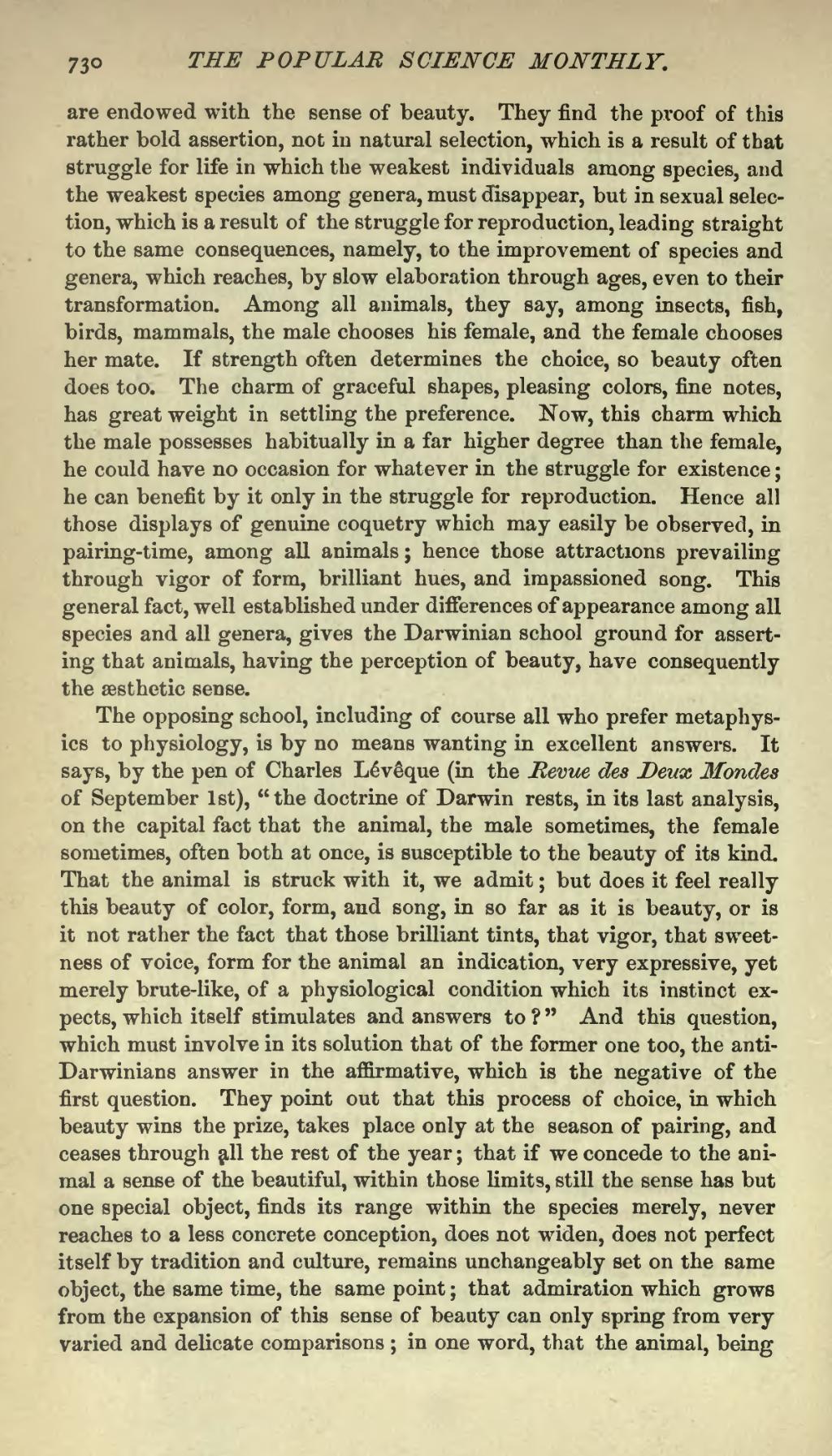are endowed with the sense of beauty. They find the proof of this rather bold assertion, not in natural selection, which is a result of that struggle for life in which the weakest individuals among species, and the weakest species among genera, must disappear, but in sexual selection, which is a result of the struggle for reproduction, leading straight to the same consequences, namely, to the improvement of species and genera, which reaches, by slow elaboration through ages, even to their transformation. Among all animals, they say, among insects, fish, birds, mammals, the male chooses his female, and the female chooses her mate. If strength often determines the choice, so beauty often does too. The charm of graceful shapes, pleasing colors, fine notes, has great weight in settling the preference. Now, this charm which the male possesses habitually in a far higher degree than the female, he could have no occasion for whatever in the struggle for existence; he can benefit by it only in the struggle for reproduction. Hence all those displays of genuine coquetry which may easily be observed, in pairing-time, among all animals; hence those attractions prevailing through vigor of form, brilliant hues, and impassioned song. This general fact, well established under differences of appearance among all species and all genera, gives the Darwinian school ground for asserting that animals, having the perception of beauty, have consequently the æsthetic sense.
The opposing school, including of course all who prefer metaphysics to physiology, is by no means wanting in excellent answers. It says, by the pen of Charles Lévêque (in the Revue des Deux Mondes of September 1st), "the doctrine of Darwin rests, in its last analysis, on the capital fact that the animal, the male sometimes, the female sometimes, often both at once, is susceptible to the beauty of its kind. That the animal is struck with it, we admit; but does it feel really this beauty of color, form, and song, in so far as it is beauty, or is it not rather the fact that those brilliant tints, that vigor, that sweetness of voice, form for the animal an indication, very expressive, yet merely brute-like, of a physiological condition which its instinct expects, which itself stimulates and answers to?" And this question, which must involve in its solution that of the former one too, the anti-Darwinians answer in the affirmative, which is the negative of the first question. They point out that this process of choice, in which beauty wins the prize, takes place only at the season of pairing, and ceases through all the rest of the year; that if we concede to the animal a sense of the beautiful, within those limits, still the sense has but one special object, finds its range within the species merely, never reaches to a less concrete conception, does not widen, does not perfect itself by tradition and culture, remains unchangeably set on the same object, the same time, the same point; that admiration which grows from the expansion of this sense of beauty can only spring from very varied and delicate comparisons; in one word, that the animal, being
